HISTORY
- Early Years
- Expansion
- Post-War Recovery
- Renaming Iwata Office to Iwata Godo
- Our Responses to Diversifying Business Needs
- The Centennial
- Guide Runner for Companies
- Tradition and Innovation
- 1900
- 1910
- 1920
- 1930
- 1940
- 1950
- 1960
- 1970
- 1980
- 1990
- 2000
- 2010
- 2020
- 2030
- 2040
- 2050
The Life of Chuzo Iwata
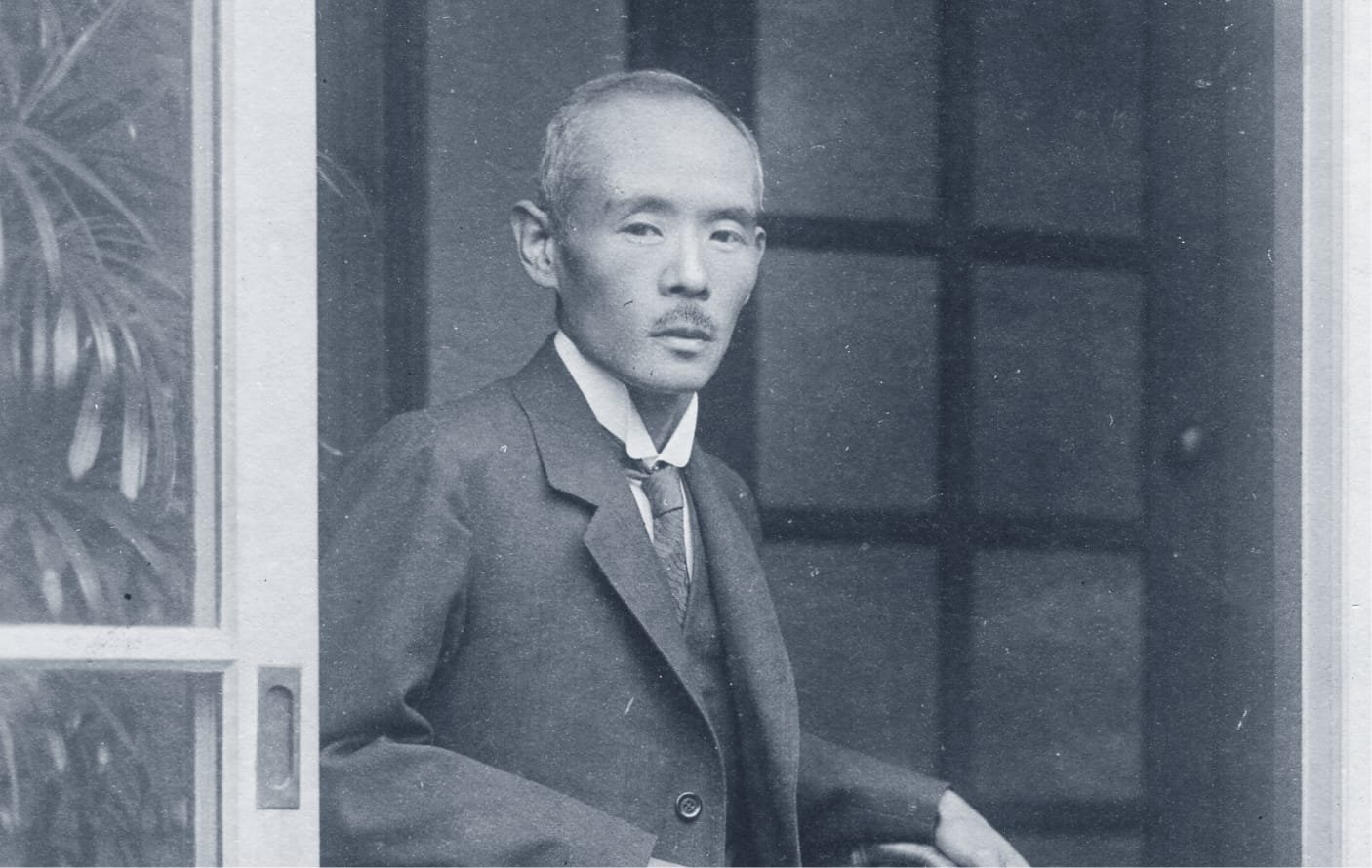
Chuzo Iwata was born in 1875 in Yamaguchi Prefecture. After graduating from Tokyo Imperial University, he became a journalist at a major newspaper, aspiring to become a statesman in the future. The financial situation of his foster family, however, did not allow him to pursue his political ambitions, and he decided instead to develop a career as an attorney. Later in life he would serve as Member of Parliament, Minister of Justice, President of the Japan Federation of Bar Associations, and Chairman of the alumni association Gakushikai. He passed away in 1966.
The career of Chuzo Iwata as an attorney at law began in 1902 when he established the Iwata Chuzo Law Office in the Tsukiji area of Tokyo. He was later appointed Member of Parliament in 1931 and actively contributed to Japanese politics. He joined the Cabinet formed immediately after the end of the war as Minister of Justice, serving under two Prime Ministers.. During this period, Dr. Iwata devoted much energy to reform of the legal profession and the judiciary, especially to promote the basic principle, now widely accepted, that judges, prosecutors and lawyers are all members of the same legal profession. He authored several notable publications and essays, including a textbook on the legal system, a book on contracts, and an essay in the Nikkei.
Dr. Chuzo Iwata, a legendary figure in Japanese judicial history not only as an attorney at law but also in public service, now rests in peace in the Tama Cemetery.
Overview of the History of Iwata Godo Attorneys
and Counsellors at Law
The history of Iwata Godo Attorneys and Counsellors at Law (“Iwata Godo”) dates back to 1902 when Chuzo Iwata, who would later serve as Minister of Justice and President of the Japan Federation of Bar Associations, founded the Iwata Chuzo Law Office. The following is an overview of the history of Iwata Godo.
Early Years
1902~
Founding of the Law Office in Marunouchi
The history of Iwata Godo began in 1902 when Chuzo Iwata, who later served as Minister of Justice, President of the Japan Federation of Bar Associations, and a member of the House of Peers, (1) founded the Iwata Chuzo Law Office ( the “Iwata Office”) in the Tsukiji area of Tokyo.
In 1906, the office moved to the Mitsubishinaka 14th Building (2) in the Marunouchi area of Tokyo, which was the first business office district in Japan, known at the time as the “London Block.”. Serving primarily corporate and business clients, and gradually increasing the number of lawyers over the years, our office has remained in Marunouchi ever since.
Note (1): In 1961, he became the first president of the National Association, the predecessor of the National Political Association.
Note (2): The site of the former Mitsubishi Heavy Industries Building (the current Marunouchi 2-chome Building), adjacent to the Mitsubishi Building, is the former site of the Mitsubishinaka 14th Building.
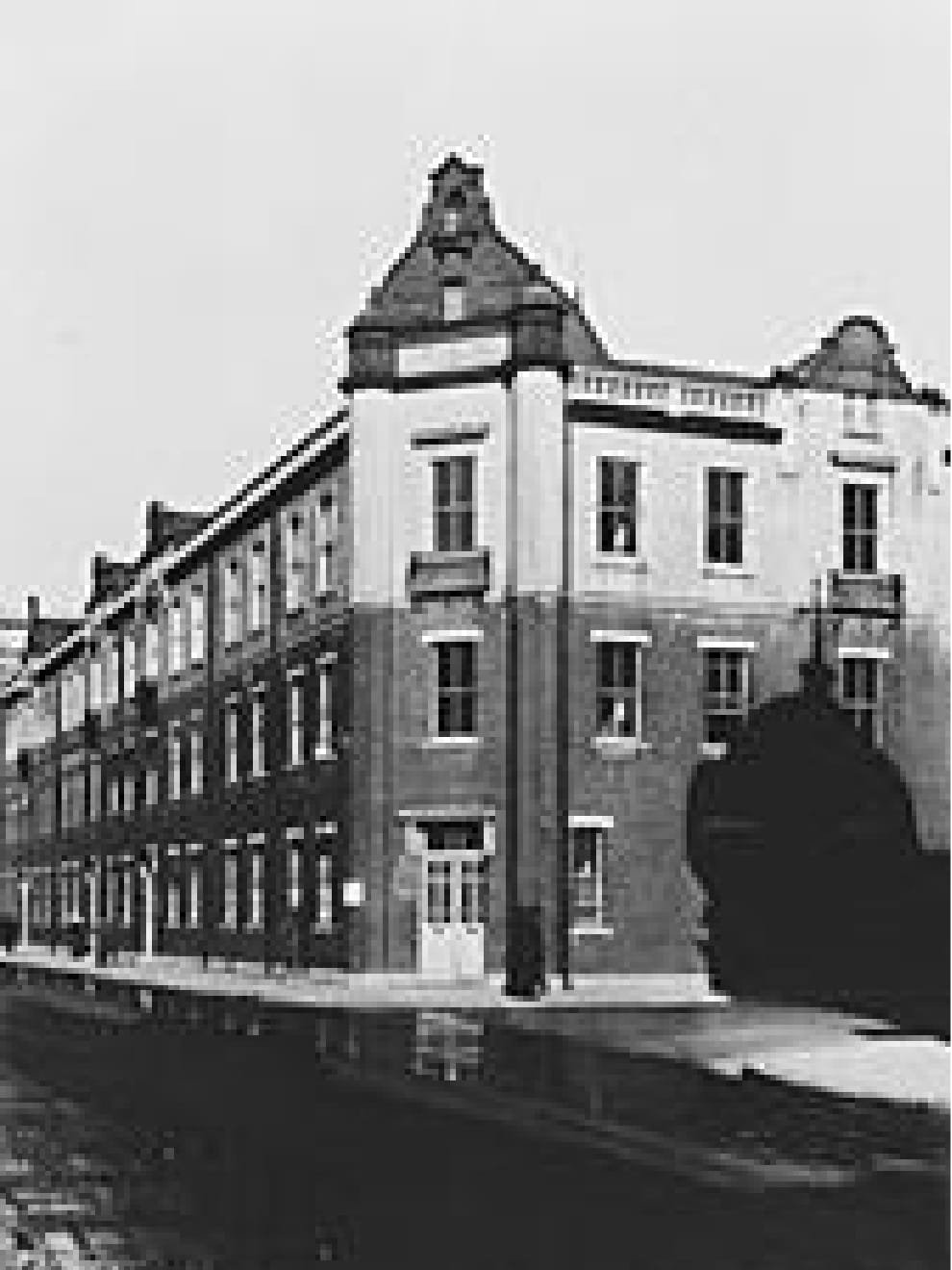
Establishment of Specialized Practice Areas
Dr. Iwata was born and raised in Tateno Village, Kumage County, Yamaguchi Prefecture (later Suo Village, now Hikari City), and studied law at Tokyo Imperial University.
While studying, Dr. Iwata became acquainted with the eminent statesman Hirobumi Ito, who was from a neighboring village. He deepened his interest in political activities, while receiving financial support from Ito. After graduating, he worked for a newspaper company to broaden his experience.
Thereafter, Dr. Iwata became an attorney, the profession in which he was the most interested. At the time of the establishment of the Iwata Office, he intended to become an expert in banking and maritime transport, focusing in particular on marine insurance.
In order to achieve this aim, he requested Ito to introduce him to the Bank of Japan and Nippon Yusen Kaisha. These introductions resulted in Dr. Iwata being designated as legal counselor to both. In addition, Dr. Iwata was appointed as a legal advisor to the Imperial Household Ministry, Tokio Marine Fire Insurance, Mitsubishi Bank, and Nihon Kangyo Bank.
Dr. Iwata devoted deep study to maritime commercial law as well as marine insurance law and handled such major cases as “the Claim for Damages Caused by the Sinking of Umegaka-Maru in Broad Daylight in Shimonoseki Port” and “the Insurance Policy Claim Regarding the Sinking of Takenoura-Maru in Kushiro Port.” He earned a strong reputation as an expert in maritime adjudications. As legal counselor of the Bank of Japan, he wrote legal opinions on various issues in banking. Dr. Iwata’s practice expanded to include the Central Banks of Taiwan and Korea, which were under Japanese colonial rule at the time, and leading companies such as Tokyo Dento (Tokyo Electric Light), an electric utility. These clients requested legal opinions from Dr. Iwata, and opinions on civil, commercial and corporate legal matters were among the firm’s strongest practice areas.
Expansion
1925~
Contribution to Judicial Precedents
From roughly 1926 to 1941, when the Pacific War broke out, the Iwata Office expanded further along with the reputation of Dr. Iwata. During this period, Japan's politics, economy, and society were at a major turning point. With the outbreak of World War I (1914), the Showa Depression (1930), and the China Incident (1937), Japan gradually became militaristic.
Against such historical background, the Iwata Office litigated a large number of major cases, including many cases which resulted in setting judicial precedents in the Supreme Court. There was also a further increase in the number of legal opinions during this period, and copies of some of those opinions are still kept in our office. (1) Some of them made history in corporate legal services in Japan. In those days, many young attorneys joined the Iwata Office and received training and guidance from Dr. Iwata in person. Nakata Masako, (2) one of the first female attorneys in Japan, was one of those young attorneys. She joined the Iwata Office and worked energetically, providing women with legal advice.
It was during this period that the firm, in addition to many civil and commercial lawsuits, took responsibility for the settlement of all debts and credits of the Kuhara conglomerate, a corporate group which included Hitachi Mining. This conglomerate had fallen on hard times in the recession following World War I.
When Dr. Iwata was asked by the president of the Bank of Taiwan, which was under Japanese rule, whether continuing the business during the Showa Depression could constitute breach of trust, he advised the president, "It does not constitute a breach of trust as long as it is beneficial to the Bank of Taiwan to continue the business. If any problem happens, you can answer by saying that you have only followed the instructions from Iwata, the legal counsel." The president reportedly avoided confusion and breach of trust. (3)
In that way, the Iwata Office dealt with cases that were the herald of so-called crisis management cases in current corporate legal affairs, since the early Showa period.
At the same time as he was expanding his practice in corporate legal affairs, Dr. Iwata played a leading role in bar associations during this period. Together with other prominent attorneys with similar views on the role and mission of a bar association, he participated in the founding of the Dai-Ichi Tokyo Bar Association, separately from the existing Tokyo Bar Association, in 1923. Today, there are three bar associations in Tokyo. Even now, a bust of Dr. Iwata is on display in a conference room of the Dai-Ichi Tokyo Bar Association together wish the busts of other leading legal experts in the private sector at the time of its foundation.
Note 1: From 1922 to 1935, there were 2 to 5 Supreme Court judicial precedents per year, and at least roughly 60 legal opinions per year. Among them, there were well-known cases such as the Supreme Court judgment of February 21, 1940 (exercise of the right of subrogation by a reinsurer and an original insurer), which appeared in Hanrei Hyakusen.
Note 2: In 1940, she became one of the first female attorneys in Japan, along with Ai Kume and Yoshiko Mibuchi, her fellow alumnae of Meiji University Women's College.
Note 3: Toshioki Date's Retrospective Talks with Harunosuke Iwata about the Master Attorney, page 242, Horitsu Shimbunsha, 1990.
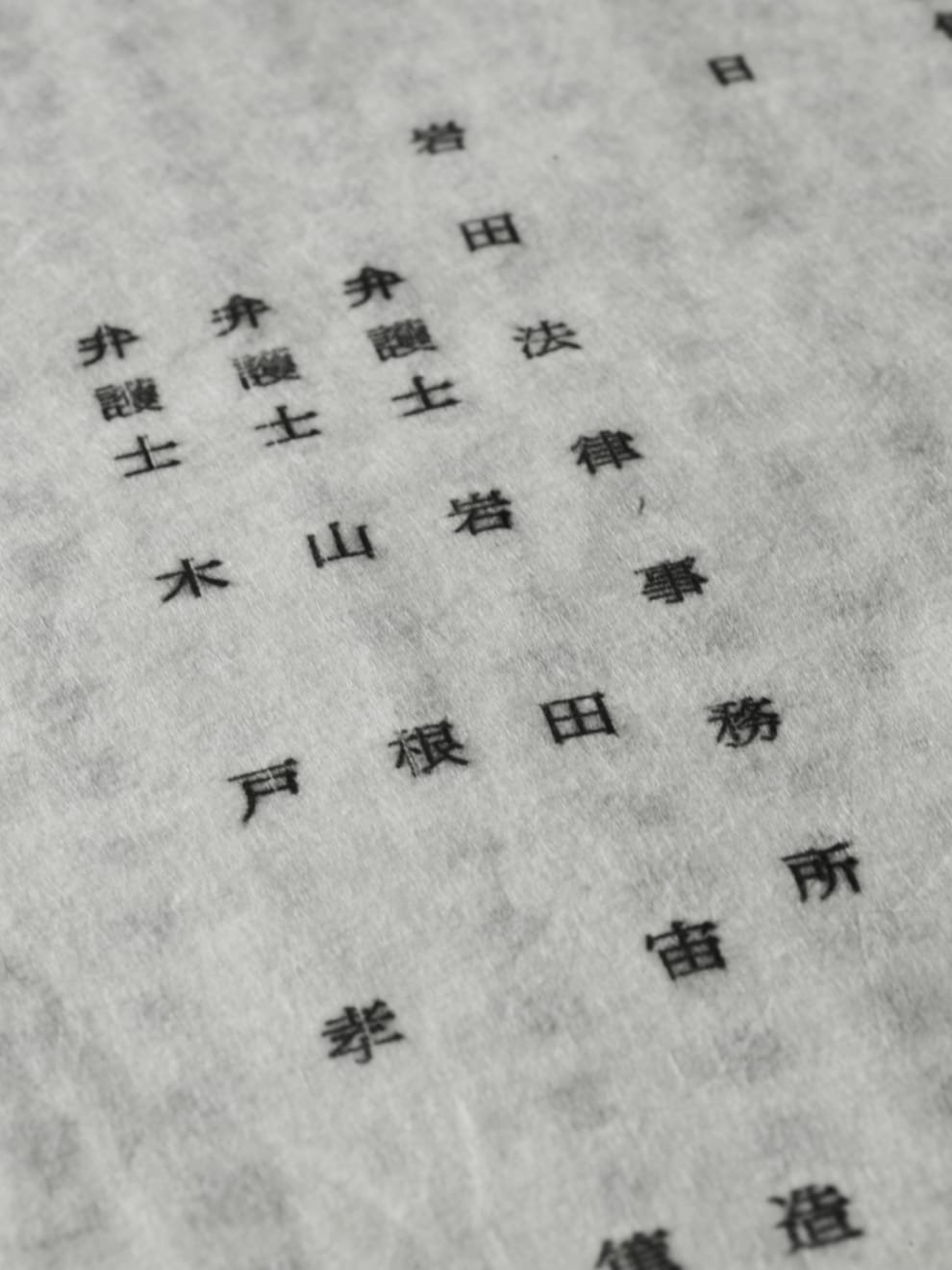
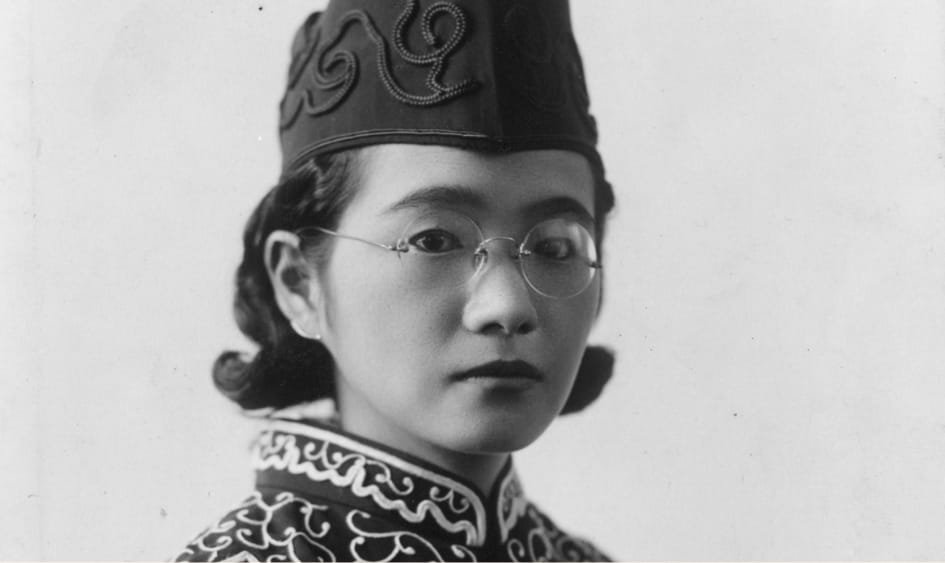
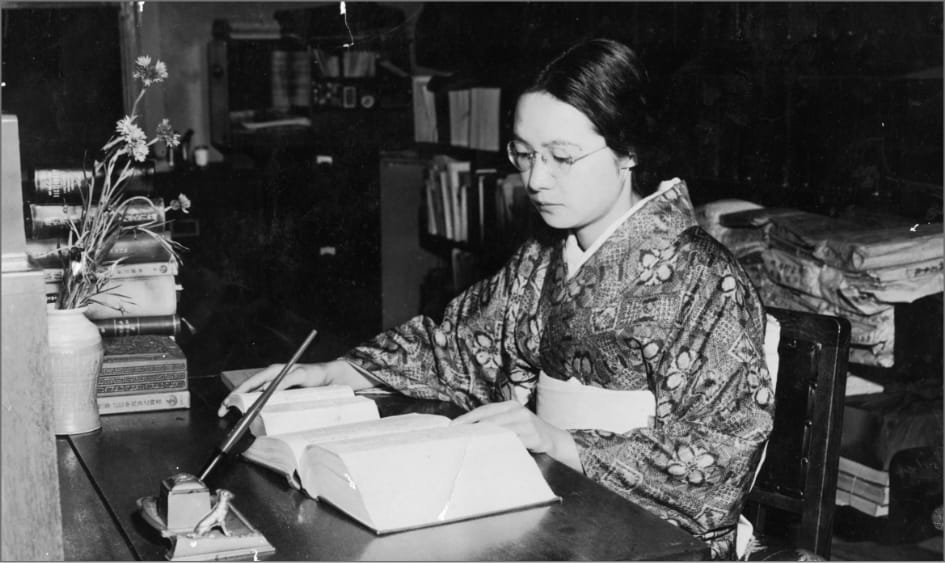
In the middle of the decade since 1935 (Private collection) Material deposited by Tottori City Museum of History
Nakata Masako, one of Japan's first female lawyers, and her connection to Iwata Godo
Nakata Masako, one of Japan's first female lawyers, passed the bar exam in 1938 and worked for the Iwata Chuzo Law Office, the predecessor of our
firm, for several years from her time as a probationary lawyer until she evacuated to Tottori in 1945. After evacuating to Tottori,
she continued her active practice as a lawyer and served as president of the Tottori Bar Association and president of the Japan Federation of Bar Associations.
Nakata Masako left comments on when she was a member of the Iwata Chuzo Law Office.
"In August 1940, the three of us started practicing as lawyers. Following my probationary days as a lawyer, I had come to work for Iwata Chuzo in Marunouchi. At that time, Mr. Iwata was already an elder member of the bar association, and there were 6 outstanding lawyers in Iwata's
office. Even though I had just become a lawyer, Mr. Iwata allowed me to take charge of the cases which were more than I deserved in his office. Other senior lawyers also shared their duties with me and taught me what lawyers need in practice. That experience is still useful to me.
In retrospect, the law itself was unequal between genders at that time, and the public consciousness was far from gender equality, but I was grateful that there was such an atmosphere in Mr. Iwata and his office.”
(Quoted from "Glorious Women" by Chiemi Saga in the April 25, 1986 Tottori edition of the Asahi Shimbun)
Post-War Recovery
1945~
Energetic Activities of “Disciple Attorneys”
World War II resulted in devastation and profound crisis in the Japanese economy, the “zaibatsu” conglomerates such as Mitsui and Mitsubishi were broken up, and leaders in the financial and other sectors were dismissed. In such conditions, the Iwata Office also saw reduced business for some time, including fewer lawsuits and legal opinions.
Immediately after the end of World War II, Dr. Iwata served as Minister of Justice and began to devote most of his time and energy to political activity. As a result, he suspended his own practice, (1) and the firm was effectively managed by the “disciple attorneys” he had trained.
Owing to the steady hard work of those attorneys, the firm recovered, keeping pace with the recovery of Japanese economy. The number of mandates for lawsuits, legal opinions and other services significantly increased, and by the early 1950s, the de facto managing attorneys began to hire junior attorneys again. These managing attorneys formed practice groups. Although each practice group worked independently, all of the groups acted jointly in the name of the Iwata Office.
As urban development progressed over the post-war recovery period, the so-called Mitsubishi village, the red brick building district in Marunouchi, was demolished and new and modern office buildings were built on the site. In 1962, the Iwata Office moved to the former Marunouchi Building. The new office at the time had 14 attorneys in total and consisted of 5 practice groups.
Note 1: Dr. Iwata was appointed an imperial nominee to the House of Peers in 1931 and later served concurrently as Cabinet Advisor and Administrative Inspector.
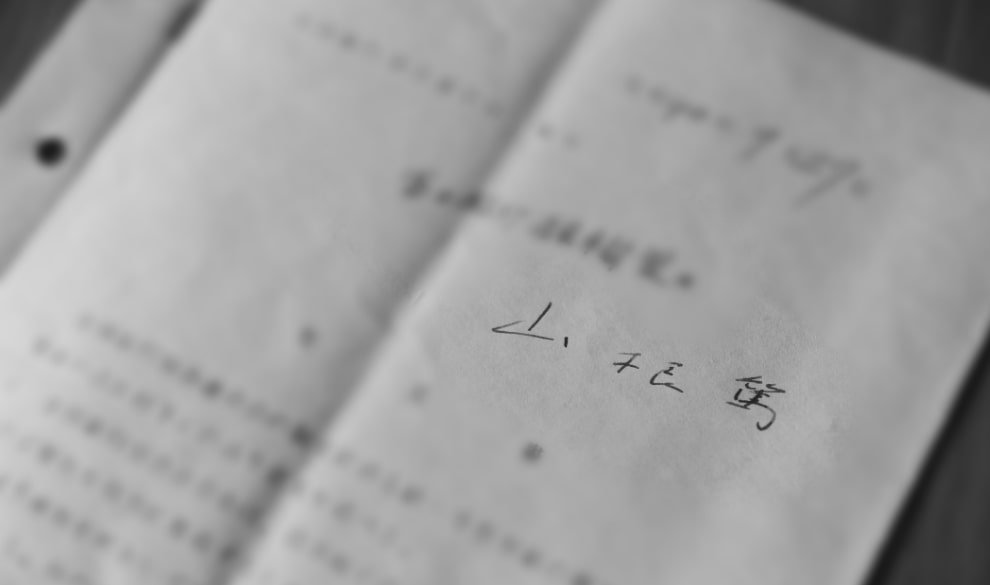
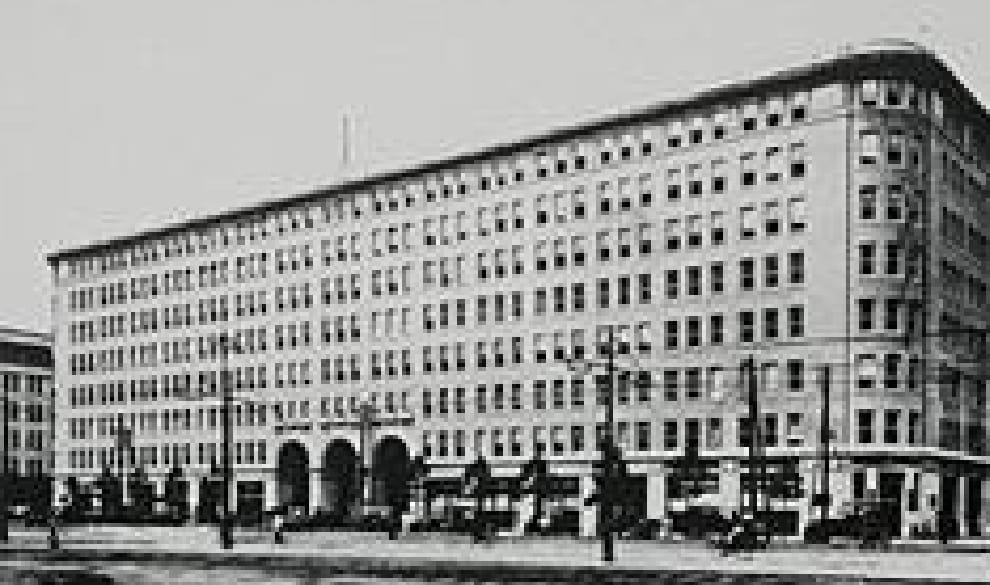
Renaming Iwata Office to Iwata Godo
1966~
Socially Important Cases
When Dr. Iwata passed away in 1966, the firm added the word “Godo” to its name, which means “joint,” and the Iwata Office was renamed Iwata Godo. This signified that the firm was jointly managed by the attorneys who were the first- and second-generation apprentices of Dr. Iwata. Some other corporate law firms that mainly provided corporate legal services followed suit at the time and used the word “godo” in their firm names, a practice that is now much less common.
From the mid-1960s to the mid-1980s, various strains caused by the rapid economic growth came to the surface in such forms as air and other environmental pollution, as well as numerous social issues. Large-scale lawsuits of new types were filed during this period.
From this period up to the early 1990s, we represented corporate defendants in many lawsuits of great importance. Such cases include insurance claims from the fire in the Showa Oil Refinery during the Niigata Earthquake, criminal and civil procedures concerning an alleged oil cartel, the Tagonoura Port wastewater sludge pollution case, the Lockheed bribery case, a lawsuit seeking an injunction to cease operation of the Date Thermal Power Plant, medical claims from thalidomide, and air pollution cases in Kawasaki, Mizushima and the southern part of Nagoya.
In company law (part of the Commercial Code at the time), we made important contributions to the case law concerning the essential basis of corporate management, including a judgment of the Grand Bench of the Supreme Court on transactions between a company and its director (necessity of Board resolution and validity of the transaction in the event of an indirect conflict of interest), as well as a judgment to the effect that when directors at general meetings of shareholders give only one answer to multiple questions, this does not necessarily violate their duty to explain.
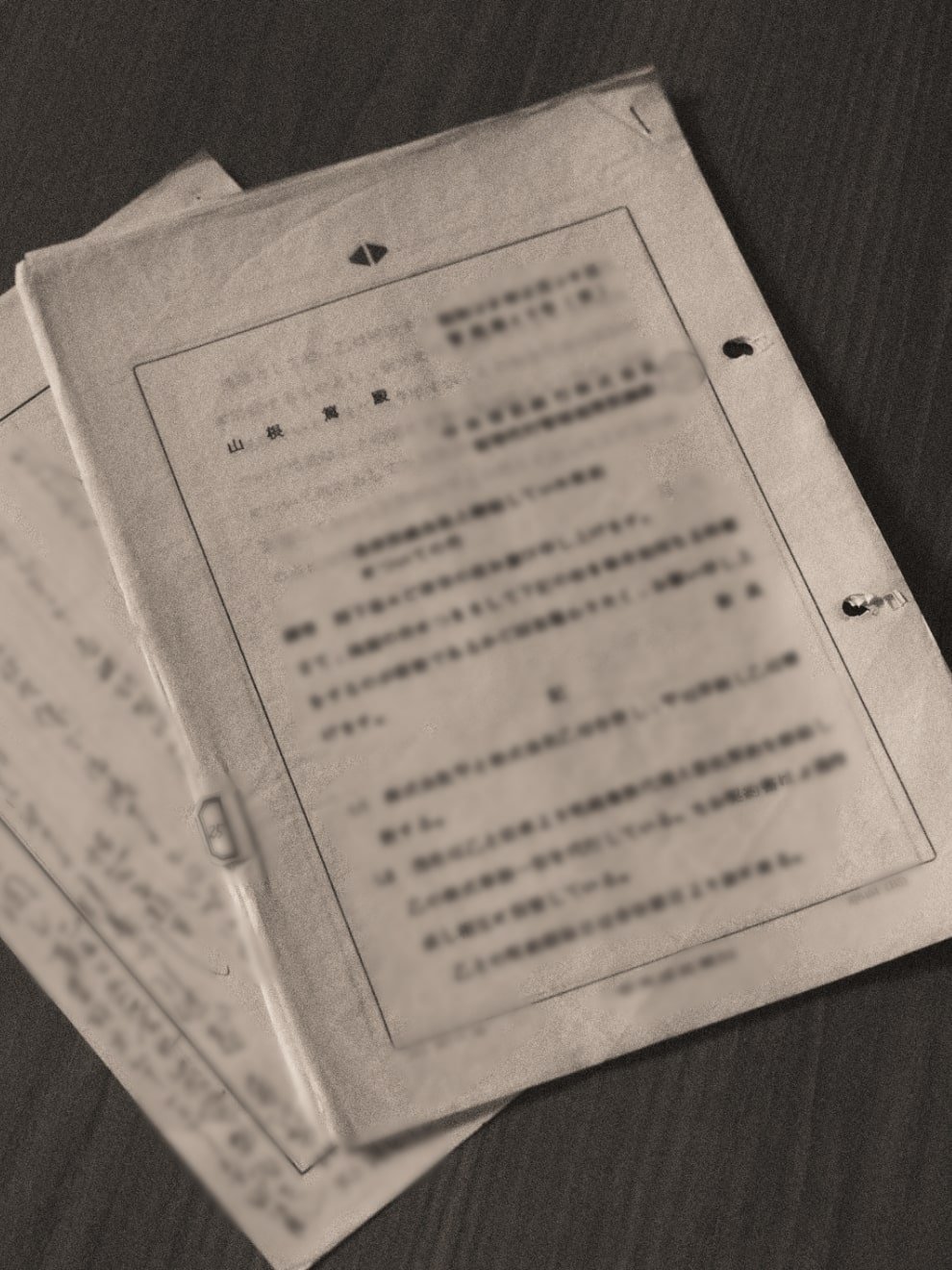
Our Responses to Diversifying Business Needs
1985~
Transition to a Full Service Firm
The practice areas and the personnel structure of the firm went through significant changes and expansion in response to the cataclysmic changes in the economic environment surrounding Japanese companies, such as rapid globalization of the Japanese economy after the 1985 Plaza Accord, the collapse of the bubble economy, and financial deregulation (the so-called “Financial Big Bang”).
In corporate law, in addition to the traditional legal services we had long been offering to many clients, such as advice on corporate management, the steering of shareholder meetings and corporate actions, we have been involved in stock-buyouts and in cases that triggered the formation of so-called Primary Purpose Rule. We have recently seen a significant increase in demand for advice and drafting of rules for compliance and corporate governance issues (including directors’ legal duty of due care). We are also seeing an increase in cases where we advise on large-scale M&A (mergers, stock transfers and assignments of business), conduct due diligence (acquisition audit), and participate in contract negotiations. In finance and financial services, there is similarly an increase in cases where we provide diversified legal services, including advice on structuring of financial schemes and regulatory issues as well as documentation, in response to the diversification of financial structures and products available to or offered by financial institutions.
In the wake of such expansion of practice areas, the number of attorneys in the firm has gradually increased.
During the financial crisis in the 1990s triggered by the collapse of the bubble economy, Iwata Godo was deeply involved in various legal procedures required for disposition of an insolvent financial institution, including the establishment of a new bank in order to liquidate this institution, the assignment of its remaining business, and other settlement procedures.
We also assisted leading financial institutions in their efforts for final disposition of non-performing loans by such means as preservation and collection of claims through court procedures when necessary, and advice on reconstruction of the debtors’ businesses. In 1999, the Servicer Act on management and collection of claims held by financial institutions came into effect. Attorneys of Iwata Godo were appointed as directors of servicers (debt collection companies) under this Act, and they continue to be involved in debt collection policies in general, including advice to management.
In 1996, the office moved temporarily to the Mitsubishi Building due to the demolition and rebuilding of the Marunouchi Building.
The Centennial
2002~
Response to Globalization
In 2002, the centennial of its founding, Iwata Godo returned to the Marunouchi Building, which had been demolished and rebuilt.
At that time, when the 21st century began, in addition to environmental lawsuits, in which we have been involved as corporate agents since the rapid economic growth period, we were required to respond to complex lawsuits, such as class-action-type lawsuits and residents' campaign-type lawsuits, and large-scale disputes between companies in the area of large-scale disputes and litigation. Corporate integration and restructuring methods were diversified, and thereafter major laws and regulations such as the Companies Act, the Financial Instruments and Exchange Act, and the Antimonopoly Act were enacted and/or revised one after another, to the extent that the period was called the Great Legislation Era. Furthermore, as compliance and corporate governance became more important, the establishment of internal control systems and group governance has been recognized as important management matters in line with an increasing risk of shareholder derivative lawsuits, and Iwata Godo has been more frequently requested to advise on those matters.
Let us turn our eyes to the world. While the world saw the global financial crisis caused by the Lehman Brothers collapse, and the subsequent European currency crisis caused a severe economic environment, there has been an increased focus on Asia, BRICs and other emerging economies, both as production sites and markets. As our clients’ business activities have been globalized further, we have had more opportunities to advise on international disputes, bankruptcies, corporate matters and finance, as well as dealing with the authorities in connection with the Foreign Competition Law and Anti-Corruption Law (FCPA, etc.). We have therefore sent our attorneys to study abroad, hired attorneys specialized in Chinese law, and have partnered with a major Chinese law firm specialized in corporate legal affairs, Jin Mao PRC Lawyers in Shanghai.
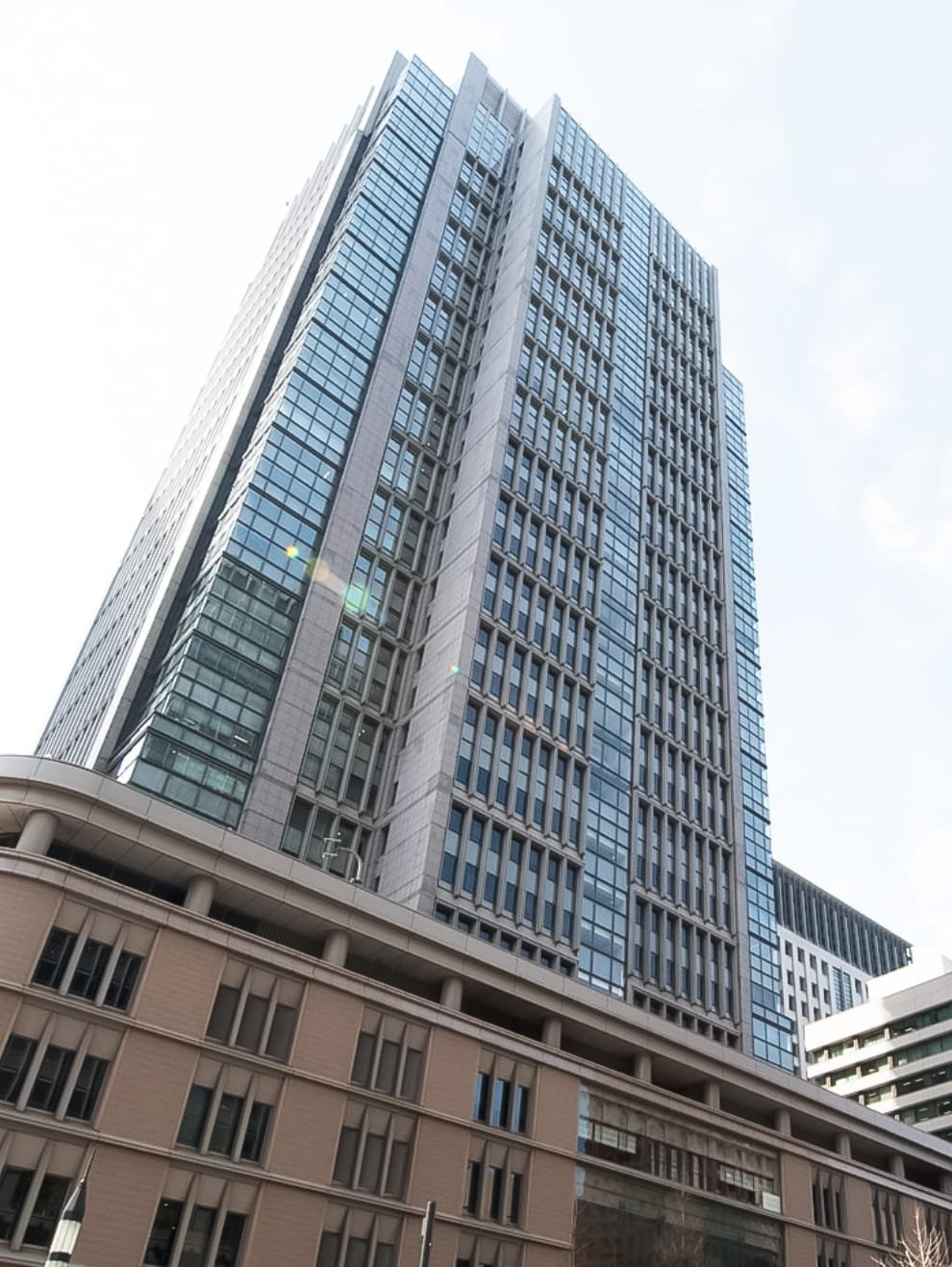
Guide Runner for Companies
2012~
Fulfilling Changing Corporate Legal Needs
The second Abe administration adopted the so-called "three arrows" economic policy, or Abenomics, aiming to overcome the lost two decades and deflation. In line with the Japan Revitalization Strategy (June 2013), a growth strategy corresponding to the third arrow in Abenomics, various legal revisions were made, such as revision of the Companies Act to strengthen corporate governance (2014), enactment of the Act on the Use of Numbers to Identify a Specific Individual in Administrative Procedures (2013), legislation related to work style reform, and revision of the Unfair Competition Prevention Act for data protection in order to promote industrial renewal, employment system reform, strengthening of human resources, scientific and technological innovation, realization of an IT society at the world's highest level, and strategic initiatives to expand access to overseas markets.
In addition, many companies had started new lines of business in fintech and IT sectors that were at the time unregulated, including , AI, cryptocurrency and metaverse.
Furthermore, companies have accelerated their global expansion to gain overseas markets, which required them to respond to the extraterritorial application of foreign laws, including competition law, data protection law, and laws for the prevention of human rights violations.
In the implementation of growth strategies, our corporate practice advises management on legal risks and solutions that comply with relevant laws and regulations.
In order to fulfill such needs in corporate legal affairs, we have developed our expertise and broadened our experience in each area, and established practice teams in employment law, tax, intellectual property and international affairs. In international affairs, Iwata Godo has joined TerraLex, a global network of independent law firms.
Furthermore, around this time, as a result of changes in the business environment and views on corporate ethics, as well as increased awareness of corporate governance, corporate misconduct that had been hidden for many years was uncovered, and some conduct that had previously been considered acceptable now became unacceptable.
We advise frequently on preventive crisis management and corporate investigations of wrongdoing, and have made recommendations and formulated recurrence prevention measures so that companies can respond to changes in social values.
In addition, we have worked together with issuers to improve their corporate value, advised M&A target companies as well as their independent committees, acted on the side of issuers in proxy fights, represented corporate defendants in lawsuits filed by activists, and dealt with many cases in which the use of the Japanese version of Wolfpack (particularly, Wolfpack by speculators) was strongly suspected. Based on such experiences, we have been making every effort to build various forms of corporate defense.
The effects of the Covid-19 pandemic have drastically changed the business and market environment around the world. In addition, Russia invaded the Ukraine in February 2022. The combined impact of the effects of the pandemic and Russia’s invasion has increased uncertainty not only about the future of the global economy but also the security environment surrounding Japan. Such global-scale dramatic changes in the social and economic environment are expected to continue in the future. Accordingly, legislation that can have a great impact on corporate activities and conditions for doing business is expected to continue.

Tradition and Innovation
2022~
120th Anniversary and the Future of Iwata Godo
In 2022, Iwata Godo celebrated the 120th anniversary of its founding.
In order to promptly and accurately respond to changes and to resolve legal issues in a state of complete readiness in any situation, we have focused on strengthening our organizational capabilities through the sharing of knowledge within the office, not to mention each member’s personal daily study. In addition, we continuously update our arrangements, as shown by our business alliance with Tsujimaru International Patent Office, the establishment of IGIP Iwata Godo Patent Attorneys Inc. in 2022 and the opening of our Sapporo office in 2023. Furthermore, in 2020, some practice groups were merged and the size of the staff was expanded. In 2023, over 100 attorneys belonged to the firm. Along with the expansion of the firm, Iwata Godo has also strived to achieve diversity in order to be able to respond to any request from any client. We consider it important to respect each other's opinions and values so that its members with diverse backgrounds can maximize their abilities. We strive to become a law firm that can fulfill expectations from society and meet the needs of rapidly changing times, while cherishing tradition, where each member studies further and always keeps in mind that continuous innovation can create a tradition.
The entire staff of Iwata Godo is determined to contribute to our clients’ sound long-term development through understanding and resolving issues, based on a relationship of trust.

